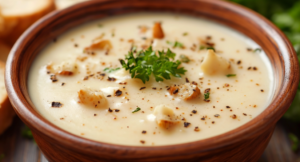In the quest for a lifestyle that champions health, vitality, and longevity, the Mediterranean diet emerges as a golden standard, deeply rooted in the culinary traditions of the countries bordering the Mediterranean Sea. It’s a diet celebrated not merely for its nutritional guidelines but for encapsulating a way of life that prioritizes balance, quality, and the pleasure of eating. This dietary pattern emphasizes the consumption of plant-based foods, whole grains, legumes, and nuts, complemented by healthy fats like olive oil, moderate amounts of fish and poultry, and a limited intake of red meats and sweets.
Deep Dive into the Heart of Longevity: The Pivotal Role of Olive Oil
Central to the Mediterranean diet is olive oil, a treasure trove of health benefits and the cornerstone of this dietary philosophy. Its prominence is not accidental; olive oil is revered for its nutritional properties, acting as a powerful catalyst for longevity. The secret lies in its composition, rich in monounsaturated fats, particularly oleic acid, and loaded with antioxidants like polyphenols and vitamin E. These compounds collectively bolster heart health, combat inflammation, and counteract oxidative stress, paving the way for a life marked by robust health and longevity.
The Health Essence of Olive Oil
Olive oil’s impact on health extends beyond its heart-protective qualities. It’s instrumental in regulating cholesterol levels by increasing HDL (good) cholesterol while lowering LDL (bad) cholesterol, creating a healthier cholesterol balance. Additionally, its anti-inflammatory properties are akin to those of anti-inflammatory medications, offering a natural remedy against inflammation-related diseases.
Furthermore, the antioxidants in olive oil are potent warriors against oxidative damage, protecting cellular health and reducing the risk of chronic diseases, including cancer. These antioxidants are not only guardians of physical health but are also linked to brain health, offering protection against neurodegenerative diseases and maintaining cognitive function as we age.
Building on its impressive profile, olive oil’s benefits extend into the realm of metabolic health, playing a pivotal role in managing and preventing type 2 diabetes. Its monounsaturated fats improve insulin sensitivity and regulate blood sugar levels, offering a natural strategy for diabetes management that complements traditional medical treatments. The Mediterranean diet, rich in olive oil, fruits, vegetables, and whole grains, embodies a dietary pattern that supports sustained energy release and balanced blood sugar levels, crucial for preventing the peaks and troughs associated with insulin resistance and metabolic syndrome.
Moreover, the dietary inclusion of olive oil contributes to weight management and obesity prevention, a key factor in promoting longevity and reducing the risk of numerous lifestyle-related diseases. Despite being high in calories, olive oil’s rich content of healthy fats and the satiety it provides can help control appetite and reduce the likelihood of overeating. This aspect of olive oil, when integrated into a balanced diet emphasizing whole, nutrient-dense foods, underscores the Mediterranean diet’s efficacy not just in enhancing longevity but in cultivating overall well-being and quality of life. Through its multifaceted health benefits, olive oil exemplifies the Mediterranean diet’s foundational belief in food as a source of life, joy, and health.
Incorporating Olive Oil into Daily Life
Embracing olive oil in daily dietary practices is both an art and a science. The Mediterranean diet advocates for its liberal use, yet it’s essential to choose high-quality extra virgin olive oil for the highest antioxidant content and health benefits. Whether used in dressing salads, drizzling over cooked dishes, or as a base for sautéing vegetables, olive oil adds a depth of flavor and richness to meals that is unmistakably Mediterranean.
Beyond its culinary uses, olive oil has found its place in household remedies and beauty treatments, echoing the practices of Mediterranean ancestors who revered this liquid gold for its multipurpose benefits. From moisturizing skin and hair to strengthening nails, olive oil is a testament to the wisdom of natural, simple ingredients for health and beauty.

Personal Touch: A Family Legacy
On a personal note, my family’s Mediterranean roots have instilled in me a profound appreciation for the diet’s simplicity and richness. My grandparents’ table was always a vibrant mosaic of Mediterranean dishes, each ingredient telling a story of tradition, health, and flavor. Olive oil was the thread that wove these stories together, a symbol of their belief in food as the most natural form of medicine.
My grandmother’s kitchen, with its ever-present aroma of olive oil, was a classroom where we learned that the secret to a long, healthy life doesn’t lie in complex diets or trends but in the earth’s simple bounties. She taught us that meals shared with loved ones are the essence of wellbeing, a philosophy at the heart of the Mediterranean diet.
Conclusion
The Mediterranean diet, with olive oil at its core, offers more than a set of dietary guidelines; it presents a holistic approach to life that celebrates food, community, and health. It’s a blueprint for longevity that transcends nutrition, encapsulating the joy of living well and the ancient wisdom of the Mediterranean way of life. Embracing this diet is a journey towards a life lived in balance and harmony, a testament to the timeless allure of simplicity and the enduring power of nature’s gifts.




